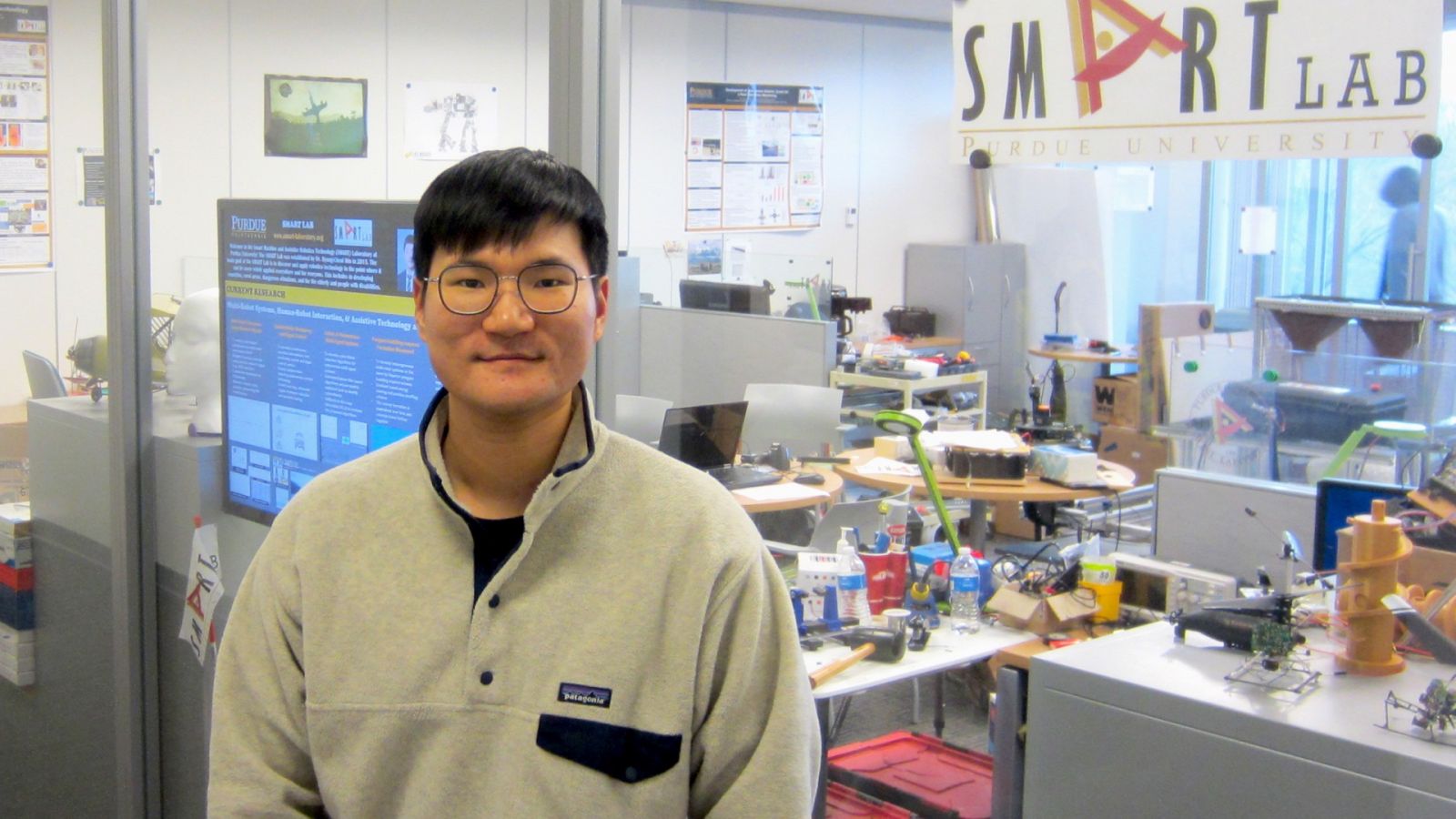
Sangjun Lee has an impressive resume. He graduated cum laude with a bachelor’s degree in aerospace engineering from Sejong University in Seoul, South Korea. He relocated to the United States to study at Purdue, receiving his master’s degree in aeronautic and astronautic engineering in 2015. He’s now pursuing his doctorate in the Polytechnic Institute’s Department of Computer and Information Technology. His research goal? He wants to keep hackers from interfering with your self-driving car.
“My study is really timely because so many things are autonomous,” said Lee. “I’m excited about the technological advances but I’m also worried because autonomous devices tend to be connected to other things, typically by network, and that makes them vulnerable to hackers.”
The definition of “autonomous” is “navigated and maneuvered by itself without a need for human interaction,” but this definition might be a little misleading. A home thermostat, garage door or robot vacuum cleaner can all behave a certain way at certain times, but those appliances don’t arrive to your home pre-programmed with the temperature you want your living room or the time to clean your floors. They need to be connected to the Internet so you can communicate with them and program them with your preferences. “It’s this connection to the Internet that can make these autonomous devices hackable,” said Lee.
Lee is resigned to the idea that system hacks are inevitable, and the best solution currently available is to detect the hack as quickly as possible and remedy the situation. “Hackers are learning ways to get into systems,” said Lee. “We are working on the defense side. We need the system to detect breaches earlier — as soon as possible — to prevent anything bad from happening.”
Lee said his research is occurring in three phases. Phase one involves identifying a system to detect hacks that potentially cause a malfunction. Phase two is devoted to mitigation, or recovering from a malfunction. Phase three is dedicated to performing real-time hacking/recovery simulations to test his system.
Lee is getting financial support with his research from a somewhat unusual source: the National Institute of Justice (NIJ).
The NIJ is the research division of the United States Department of Justice, which has several security-related responsibilities, including ensuring the safety of the U.S. population. The mission of the NIJ is to improve knowledge and understanding of crime through science. They provide grants to fund research aimed at reducing crime, and preventing violence and victimization.
“Until now, cybersecurity research has mostly focused on intangible events, such as identity theft,” said Byung-Cheol Min, assistant professor in the Department of Computer and Information Technology and Lee’s advisor. “As far as I know, this is the first time the NIJ has identified a physical entity — an autonomous automobile — to represent a cybersecurity risk and deemed the situation a public safety issue.”
Lee’s research findings won’t be limited to protecting vehicles. “The results of this study can be applied to any system that is remotely controlled,” continued Lee, “such as military missiles and surgical robots.”
“I’m so proud of Sangjun,” said Min. “This is a prestigious, nationally recognized fellowship. He is the first Polytechnic student — and only the third student from Purdue — to win it.”

Comments
.